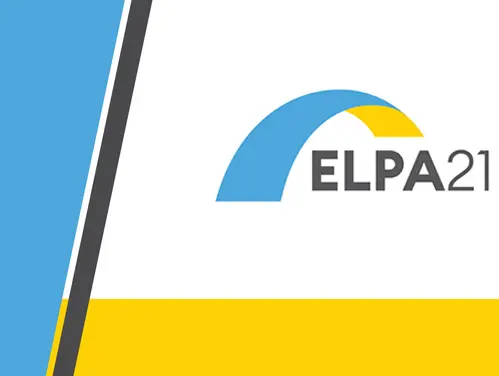Up until now, educators didn’t have a good way to determine whether English language learners with significant cognitive disabilities were becoming proficient in English. That’s because the existing assessment was created for the general student population and didn’t give educators tools to monitor progress among the students with significant cognitive disabilities.
That changed this year with the debut of the Alternative English Language Proficiency Assessment for the 21st century.
“We are really excited about the assessment,” said Terri Schuster, a consultant at the Iowa Department of Education. “We’ve been doing field tests in schools and everyone really likes what they see.”
The alternative English language assessment is the result of collaborative work to create a test for students with significant cognitive disabilities. Through a federal grant, Iowa is the lead among nine other states and the University of California/Los Angeles to create the alternative assessment.
The alternative assessment enables students to answer the questions in their most familiar communication mode.
“The communication mode might be an eye gaze, sign language or a communication device,” Schuster said. “The assessment offers a whole range of possibilities in order to take the assessment.”
“Previously, English learners with the most significant cognitive disabilities had to participate in the general assessment offered to all students, which was not a good fit as much of it was inaccessible to them,” Schuster said. “This year we are rolling out the Alt ELPA field test, with the expectation that it will be fully operational next year.”
The alternative assessment requires that an English language learner educator pair up with a special education teacher to ensure it is administered meeting the needs of each individual student with significant cognitive disabilities.
“The goal with the assessment is to be able to exit the program because you became proficient in the English language,” Schuster said. “Prior to this, students with significant cognitive disabilities couldn’t exit the English language learner program because we weren’t able to truly understand what they had learned. This new alternative test enables us to know when they become proficient and then they can subsequently exit the program.”
The Council Bluffs Community School District was selected to have a field test of the alternative assessment. And for Lily Mescher, who is an English language learner coach for sixth through 12 grade students of the district, the alternative test has been a game changer.
“It’s great making the assessment accessible for students with the most significant cognitive disabilities,” she said. “We did a practice test with the students, making sure they were comfortable with the format and know what tools are available to them.”
Before administering the test, Mescher met with the special education teachers whose students would be taking the test.
“The first step is having the special education teacher trained,” she said. “Then we discuss accommodations and fill out personal-needs profiles, which demonstrate what each student needs. We do the practice test together, and then we go back another time to administer the test. It usually takes two sessions to complete the test.”
Mescher said she’s very pleased with the alternative assessment.
“It’s been great,” she said. “It’s been awesome to see students interact with the material and demonstrate their English proficiency like their peers. It’s definitely more accessible for them. It’s been great to see that they are able to be successful when taking this standardized test.”
Training for administering the alternative test will eventually be available in modules through the Area Education Agency Professional Development Online (AEA PD Online). The training modules are expected to be available by spring of 2024. There also is guidance for educators that provides more information on participation guidelines, team administrator collaboration, accessing the testing platform, scoring protocol, score reporting, exit criteria and accountability.
For more information about the assessment, contact Schuster at terri.schuster@iowa.gov.
Subscribe to receive email updates from the Iowa Department of Education.
